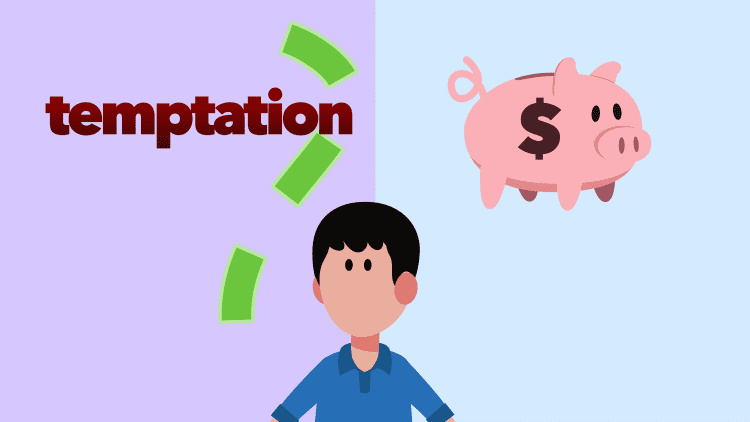In Harvard professor Ashley Whillans' book "Time Smart," Whillans argues that valuing time over money can automatically improve your quality of life and make you happier.
Research shows "over and over again that people who prioritize time report greater happiness than people who prioritize money," she tells Grow, in part because valuing time helps "us feel more in control of our everyday lives." Fill your days with "time-affluent activities," she suggests, or ones that are truly meaningful to you.
Without a clear incentive, though, it can be hard to make room for time-affluent activities when your day-to-day life is already busy. So to give a sense of how much happier certain activities can make you, Whillans came up with a metric: happiness dollars.
More from Grow:
Harvard professor: 5 free activities can increase your happiness fast
4 free ways to reduce stress and take care of yourself while at home
Why self-calming is ‘crucial’ if you want to make good money choices
Happiness dollars give the monetary equivalent of how much happier a given activity can make you. Say you get a $10,000 raise, for example. That $10,000 raise will make you a certain amount happier, so that's the happiness dollar value of the raise. There are other activities, though, that will make you just as happy. Their happiness dollar value is therefore $10,000, too.
Outsourcing chores, for example, she says, can make you $18,000 happier. Just remember to factor in any costs associated with the activity when calculating its happiness value.
Here are five activities Whillans recommends doing and how much happier they could make you per year in happiness dollars.
Active leisure: $1,800 happier
Spending 30 minutes per day on what Whillans calls active leisure, which can be as varied as exercising or volunteering, could make you $1,800 happier.
There have been countless studies linking physical exercise and happiness. People who exercise for at least 30 minutes several days out of the week were about 30% more likely to consider themselves happy than those who exercise less, according to previous reporting by CNBC.
Savoring meals: $3,600 happier
"Savoring is a form of mindfulness," Whillans writes in her book, "because it requires you to disconnect from productivity and efficiency and focus on the present." It's also a way of letting go of the need to create a perfect experience, she says.
People who have this attitude can pick a restaurant to eat at, for example, and a meal to eat without stressing about whether or not they're the right ones and without then building expectations for them. They just enjoy the experience for what it is.
This attitude goes for savoring other experiences, too, says Whillans, like appreciating good weather or enjoying an outdoor concert.
Savoring is a form of mindfulness because it requires you to disconnect from productivity and efficiency and focus on the present.Ashley WhillansAuthor of 'Time Smart'
Taking vacation: $4,400 happier
Many Americans don't take all of their vacation time. The average American used just 54% of their available PTO, according to a 2017 Glassdoor survey of 2,224 U.S. adults. And the pandemic only accelerated that trend.
Taking just eight more days of vacation per year could result in a $4,400 happiness bump. Most working adults have two weeks of paid vacation time. "All people have to do to increase their time affluence and happiness is to take the paid days off they are entitled to," Whillans writes in the book.
Outsourcing chores: $18,000 happier
Although hiring someone to do your laundry or clean your house may seem superfluous considering you can do those chores yourself, the benefits of outsourcing your most disliked activities far outweigh the cost of hiring someone to do them. The boost is the equivalent of 18,000 happiness dollars.
In a series of 2019 articles in the Harvard Business Review, Whillans and other researchers noted that spending as little as $40 on something that saves time (in their example, an hour of home cleaning through TaskRabbit), will make you happier than spending that money on "stuff" — especially if you use that purchased time to do something you enjoy.
Say you hate grocery shopping. If you hire someone to do that for you, she points out, that's two hours a week less of doing something you don't like, plus 104 hours, or more than four days worth, of extra time per year to fill with activities that truly bring you joy.

Video by Jason Armesto
Socializing: Up to $108,000 happier
Socializing helps to stave off feelings of loneliness, helps cognitive skills, and increases happiness, according to the Mayo Clinic. People who take friendly breaks throughout the day and socialize also ultimately get more done, says Whillans.
Adding a daily dose of time with family and friends can boost happiness tremendously. "Spending time each day with friends and family produces an income increase that is equivalent to making $108,000 more in annual household income," she writes in the book.
That maximum would apply to someone who shifts from spending no time with friends and family to doing so every day, Whillans says. But even boosting your socialization a few times a week can yield a happiness bump of $5,800 per year.
One thing to keep in mind, says Whillans, is that these figures are based on averages. Some people will benefit less from some of these activities, and some people could benefit much more.
The article "Harvard Professor: Outsourcing Chores Could Make You as Happy as Getting a $18,000 Raise" originally published on Grow+Acorns.



